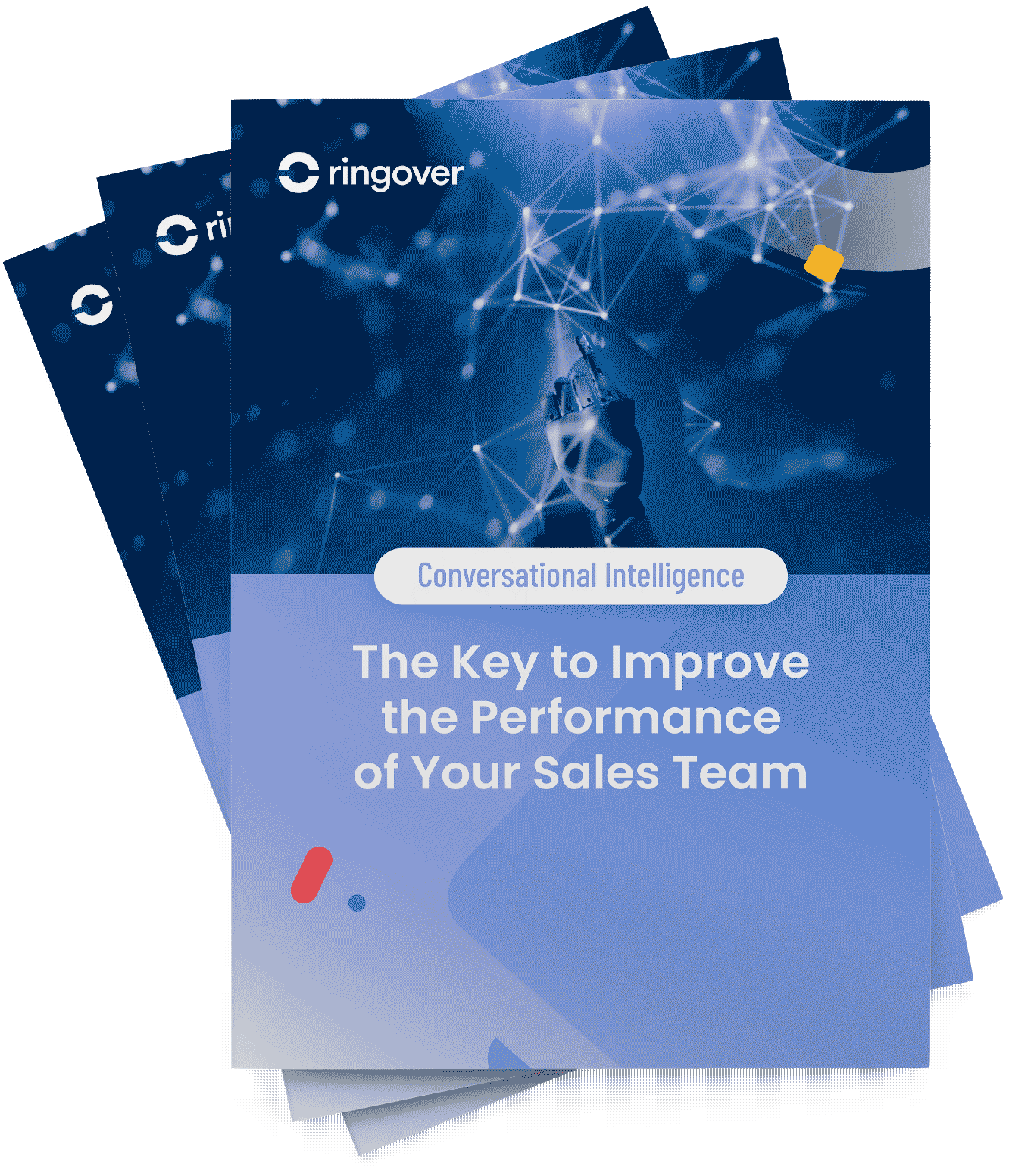Summary
Artificial intelligence (AI) is at the forefront of technology, offering machines the ability to mimic human cognitive skills, including learning, understanding, reasoning, and even creativity. AI software represents these advances in the form of programs capable of performing various tasks, whether complex or routine, with remarkable efficiency and precision.
The following article highlights 10 of the best AI tools in 2025.
These tools are designed to help you explore and fully enjoy the extraordinary benefits of AI in multiple sectors, such as content creation, image editing, voice recognition, big data analysis, and decision-making assistance. Regardless of your level of expertise or budget, these software offer a range of cutting-edge features.
The best AI tools
| AI Software | Description |
|---|---|
| Empower by Ringover | Conversational analysis solution with automatic transcription, statistics, and recommendations |
| ChatGPT | OpenAI chatbot for natural and relevant conversations. Available on web, apps, extensions |
| DeepL | High-quality automatic translation, supports 130 languages. Includes DeepL Write for correction and rephrasing |
| DALL·E | Generates images and artworks from textual descriptions |
| Midjourney | Generates studio-quality media based on natural language descriptions. Used for marketing, education, entertainment |
| Framer | Creates interactive prototypes for websites and apps. No-code deep learning technology |
| PeopleGPT | AI for recruitment, optimizes the search for qualified talent |
| Viso Suite | Comprehensive solution for computer vision applications. Visual programming interface, pre-built modules |
| Synthesia | Creates videos with customizable synthetic voices. Over 100 voices in 40 languages |
| Jasper | Automatic photo retouching: brightness, contrast, saturation, sharpness |
What is an AI tool?
AI tools are designed to simulate human actions by processing and learning from vast sets of data and knowledge. Their key functionalities include machine learning, voice command recognition, virtual assistants, among others.
There's a general distinction between two types of AI software: generative AI software and analytical AI software. The former has the capability to generate new content (images, texts, music, videos, etc.) based on textual inputs or other simple queries. Analytical AI software, on the other hand, processes and analyzes complex data, including images, texts, and videos, to derive useful information, identify trends, make predictions, or generate recommendations.
The use of AI tools extends to various sectors, including marketing, finance, healthcare, education, art, and entertainment. They offer considerable advantages such as time optimization, cost reduction, improved quality of services or products, increased creativity, and personalized user experiences. Accessible to all skill levels and budgets, there are both free and paid solutions available online or offline, catering to simple or complex needs.
The List of the Best AI Tools
1. Empower by Ringover
Empower is a conversation intelligence solution developed by Ringover. It integrates with your VoIP software to retrieve and analyze customer interactions.
The goal? To allow you to extract and exploit the potential of each discussion. Empower uses natural language processing technologies and can transcribe each phone call and summarize them in different languages. However large the volume of calls, Empower ensures that key moments and patterns aren't missed.
Empower can also identify discussion topics, which can serve you in many ways:
- To verify the relevance of your sales or customer service teams' discourse
- To save time on post-call tasks
- To gain a finer understanding of your customers and prospects
2. ChatGPT
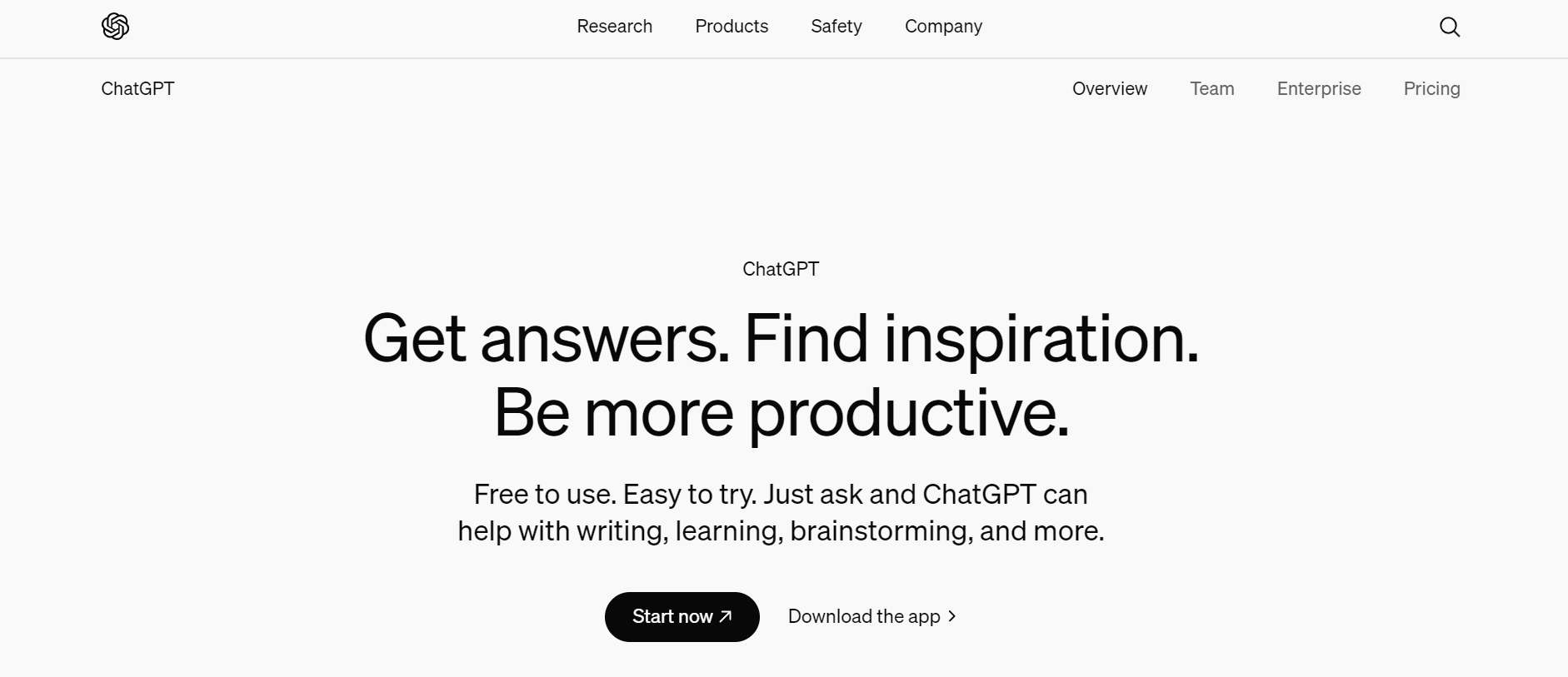
ChatGPT, developed by OpenAI, provides a wide range of virtual assistance. This chatbot engages in natural conversations, responds to ChatGPT prompts, learns from its mistakes, challenges incorrect statements, and refuses inappropriate requests. While still in need of improvement, the service is impressive and has become the AI revolution's flagship tool.
3. DeepL
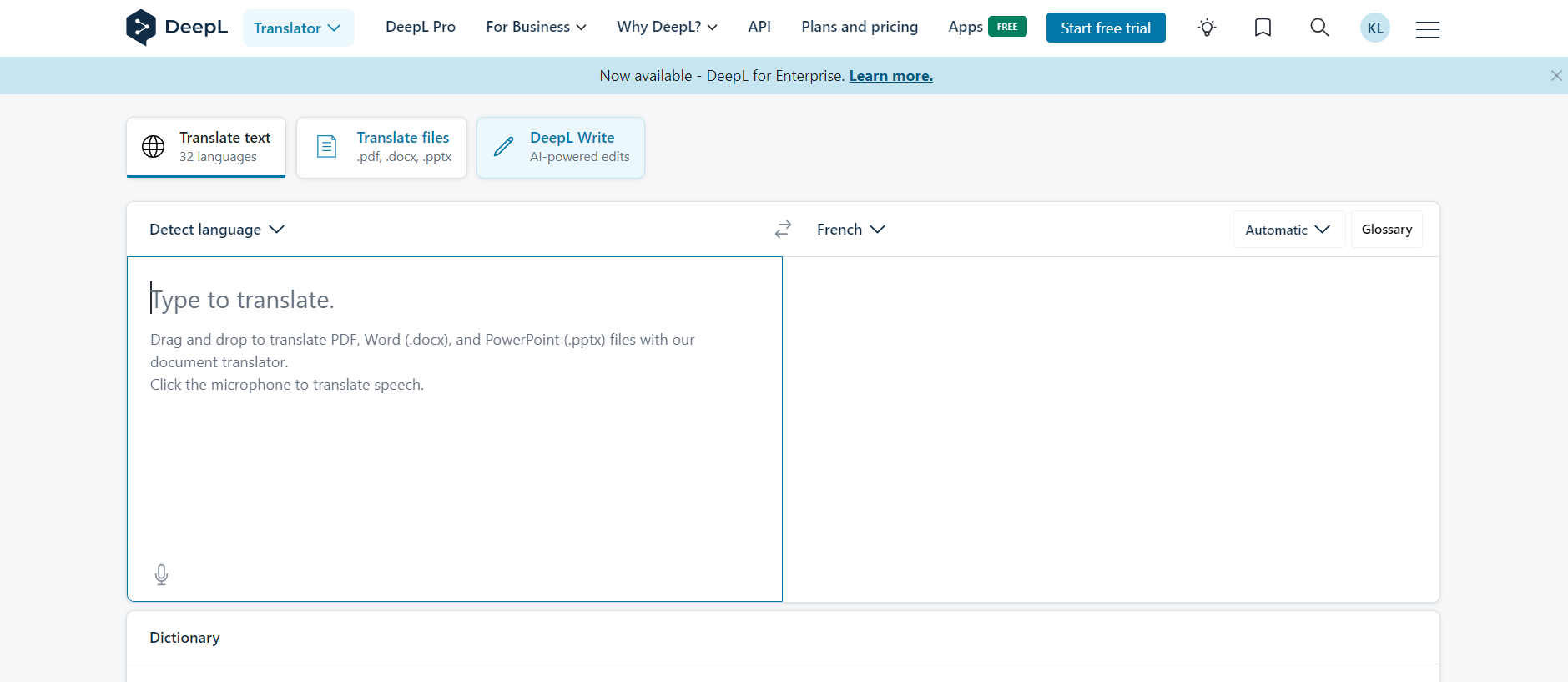
DeepL stands out in the field of automatic translation with its advanced neural approach, guaranteeing high-quality translations. It can handle PDF, Word, and PowerPoint files and includes DeepL Write, a writing assistance tool capable of correcting and rephrasing your texts.
With support for over 130 languages and a range of advanced features, DeepL caters to a wide audience, from professionals to curious users.
4. DALL·E
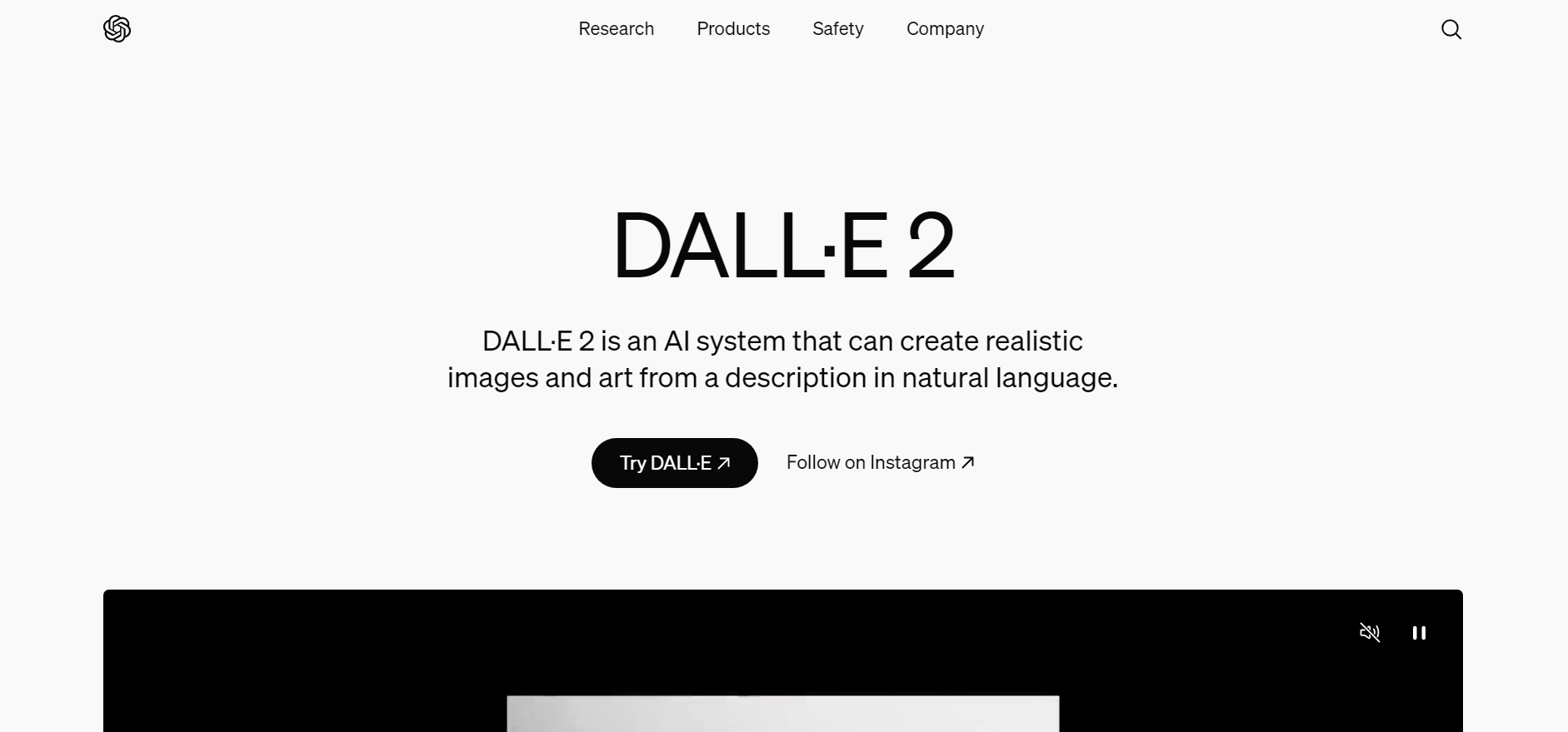
Pushing the boundaries of visual creation, DALL·E is an AI system developed to generate highly realistic images and artworks from textual descriptions (prompts). Leveraging a powerful version of ChatGPT, DALL·E creates unique images by combining concepts, styles, and attributes.
5. Midjourney
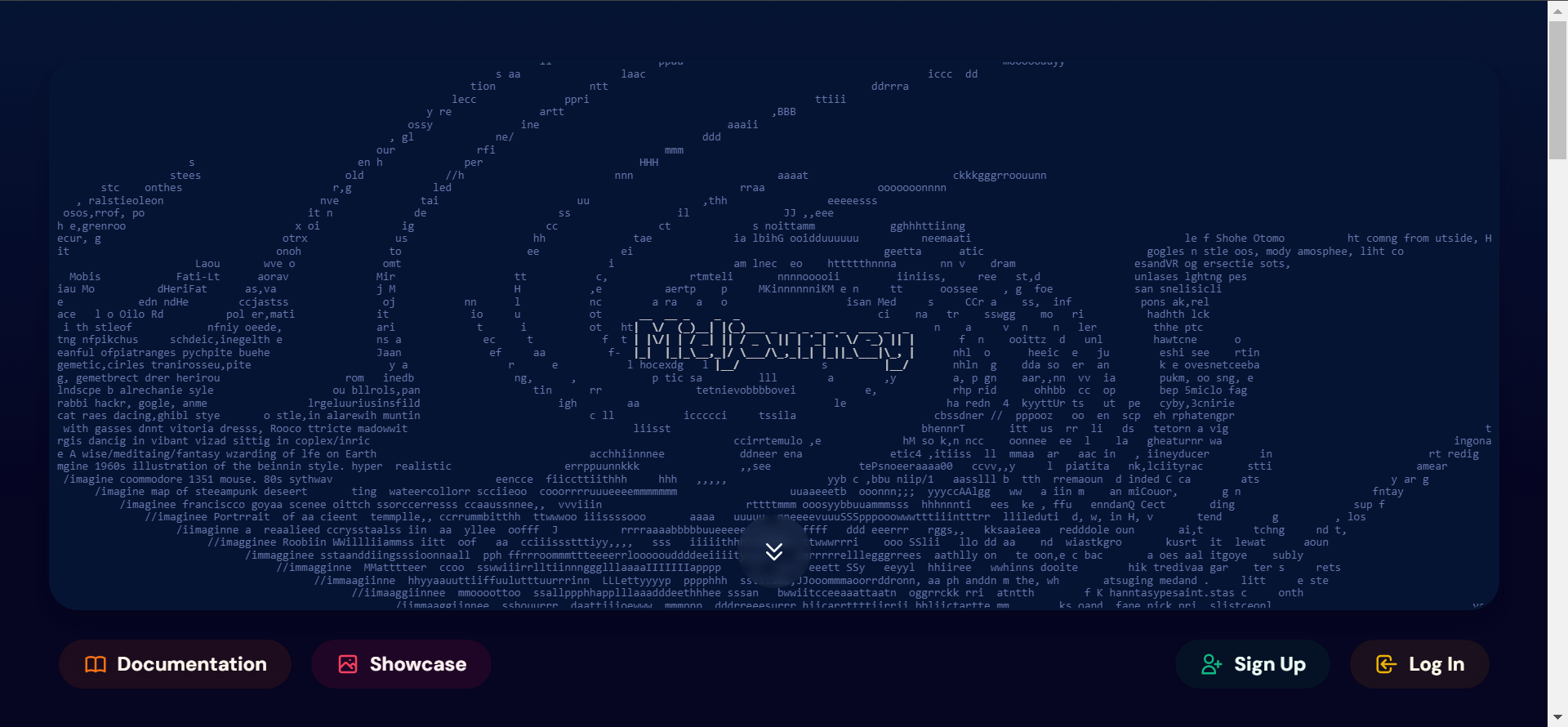
Midjourney operates as an independent research lab dedicated to exploring new horizons of thought and expanding human imagination. Similar to DALL·E, it is an advanced media creation software via AI, capable of generating images based on prompts in minutes via the cloud.
6. Framer
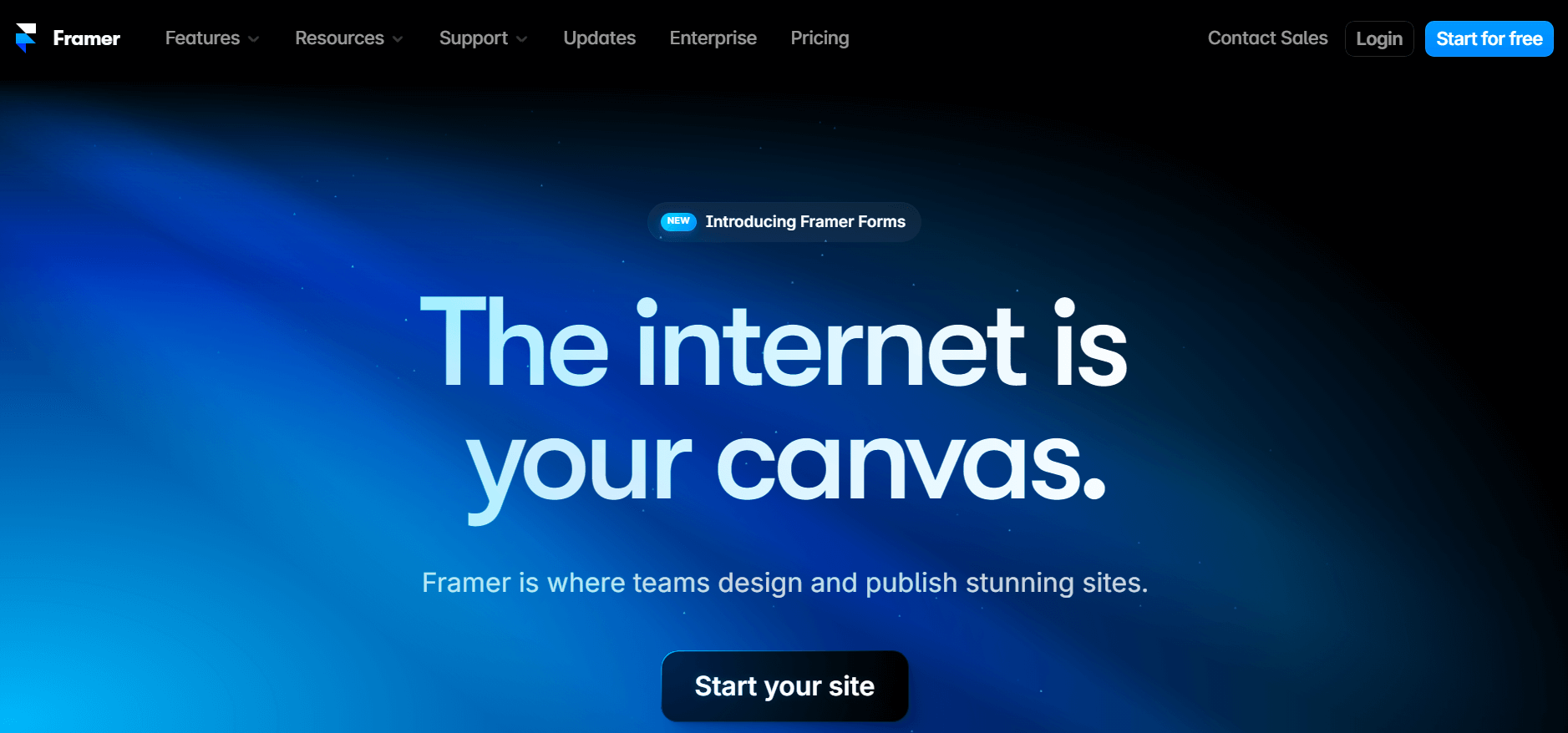
Framer revolutionizes web design by merging design and coding, allowing the creation of interactive prototypes for websites and applications. Its intuitive visual interface facilitates the manipulation of components and code to bring your visions to reality.
7. PeopleGPT
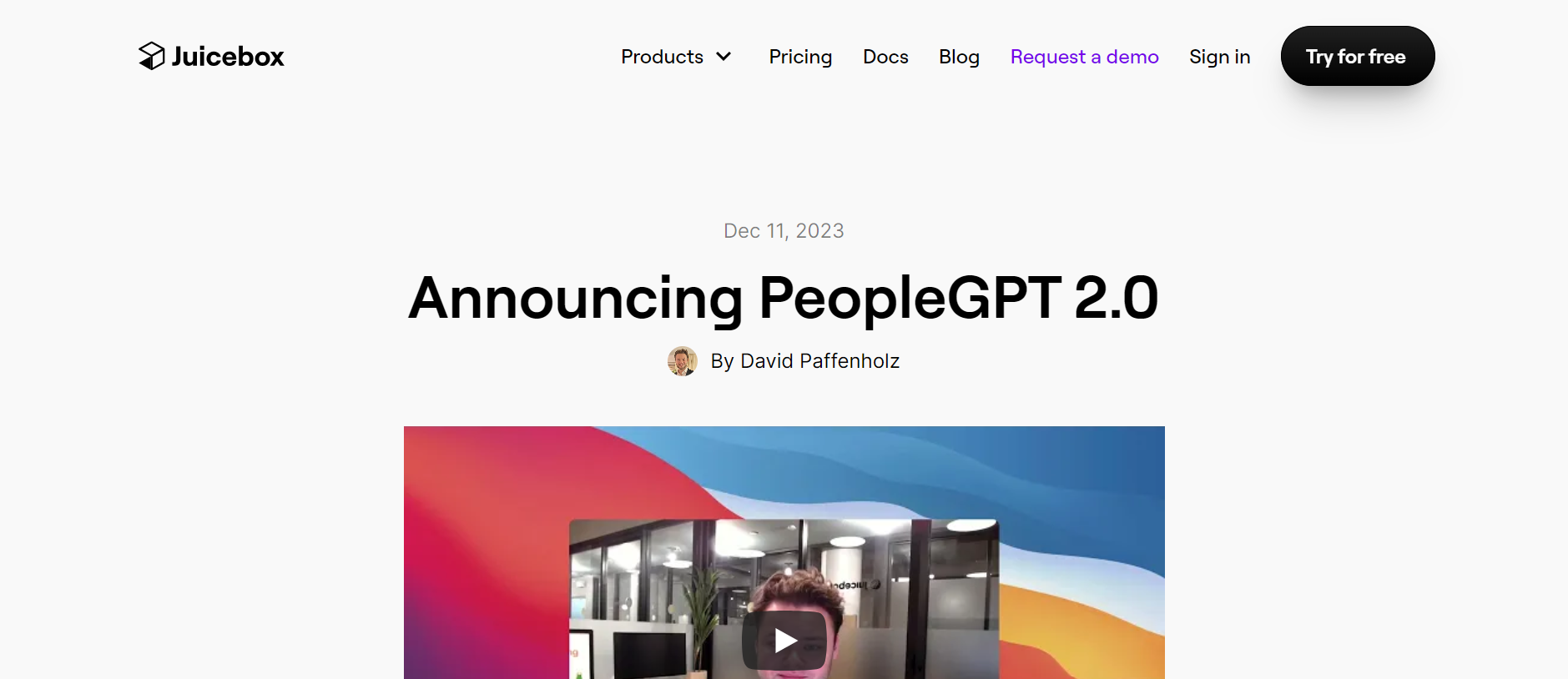
PeopleGPT brings AI in recruitment to improve staffing efforts. This AI-powered search engine optimizes the search for qualified talent through real-time analyses of professional profiles, publications, and specialized sites, providing the necessary contacts for outreach.
8. Viso Suite
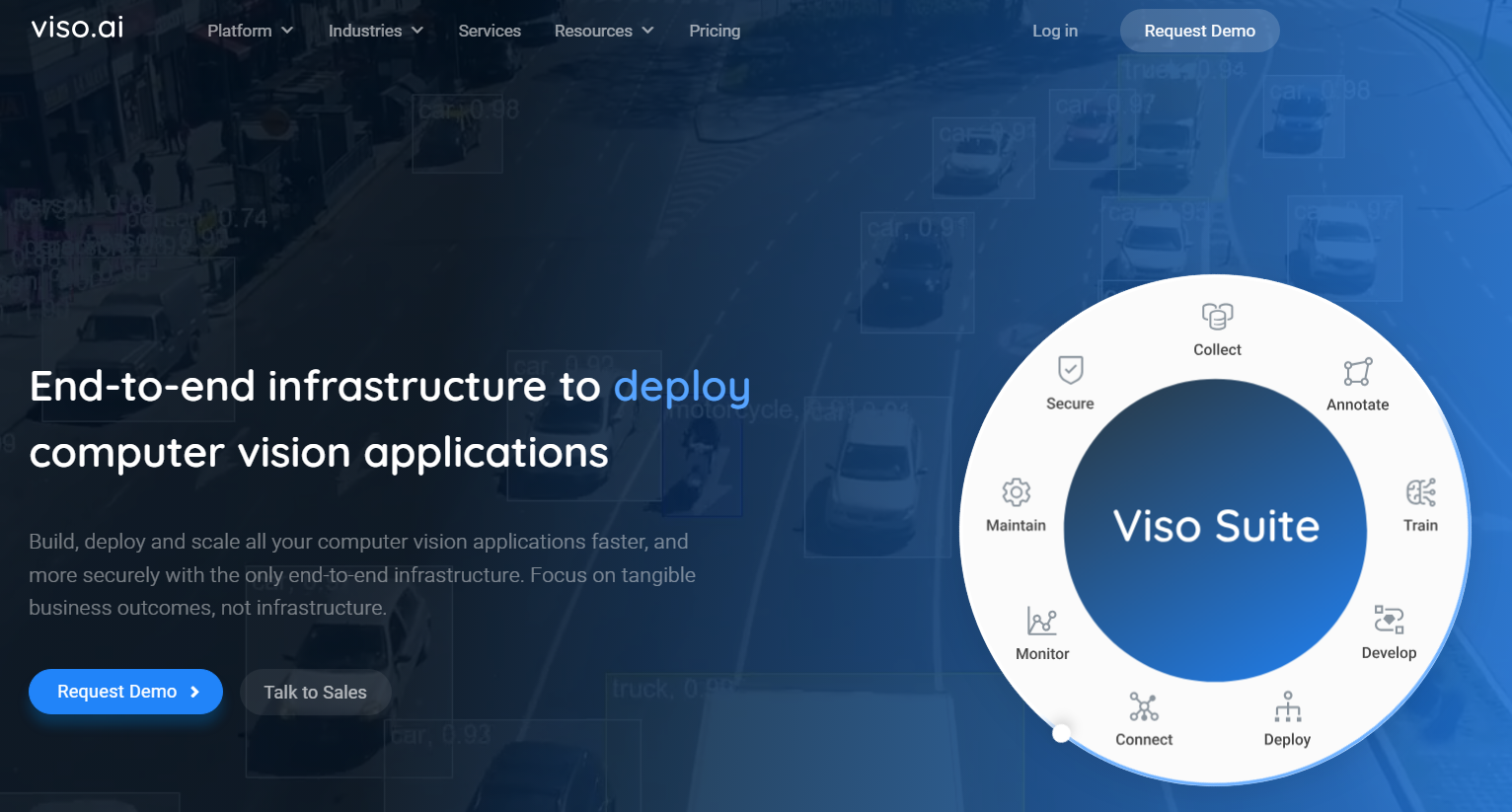
Viso Suite has established itself as the first complete solution for the development, deployment, and management of computer vision applications. With its secure and scalable software platform, it covers the entire spectrum, from edge to cloud.
9. Synthesia
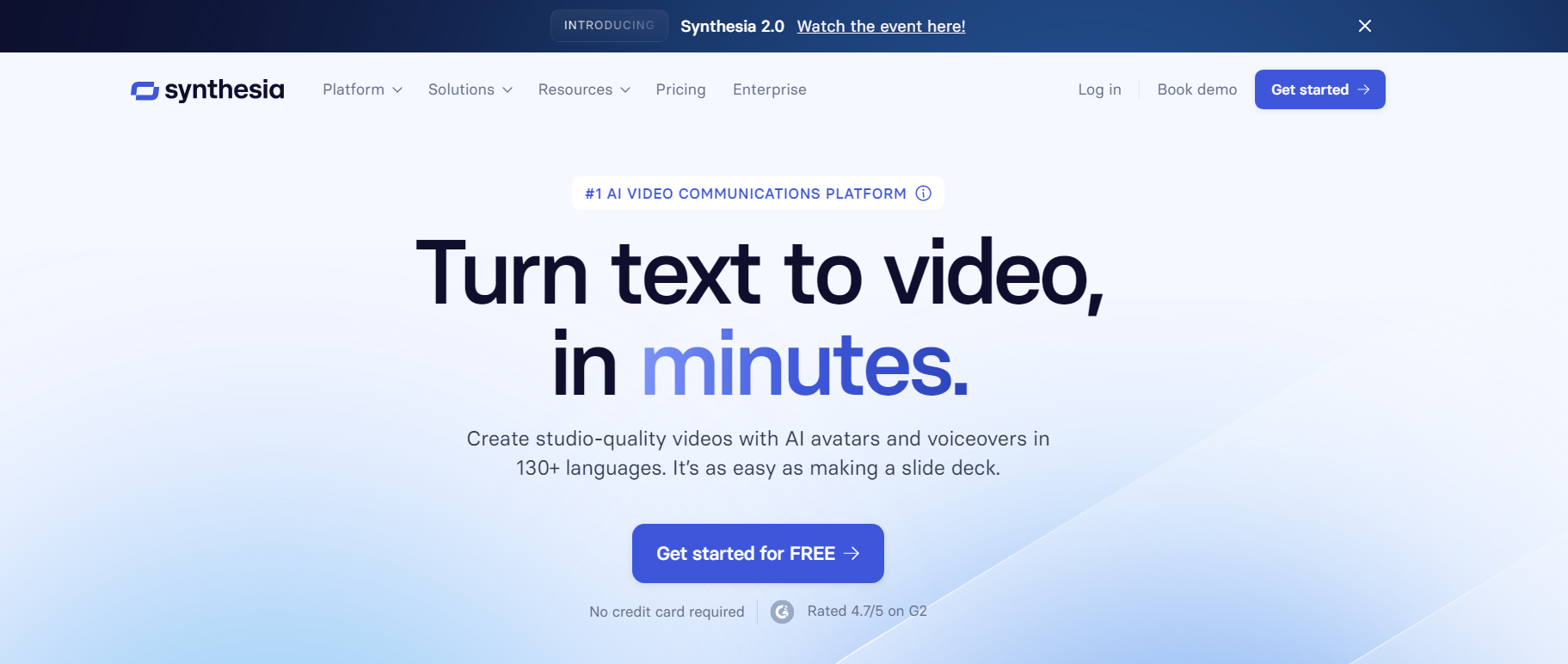
Synthesia offers innovative voice synthesis software that makes it possible to create videos with customizable synthetic voices. Choose from over 100 voices available in more than 40 languages, adapting tone, rhythm, and emotions to bring your content to life.
10. Jasper
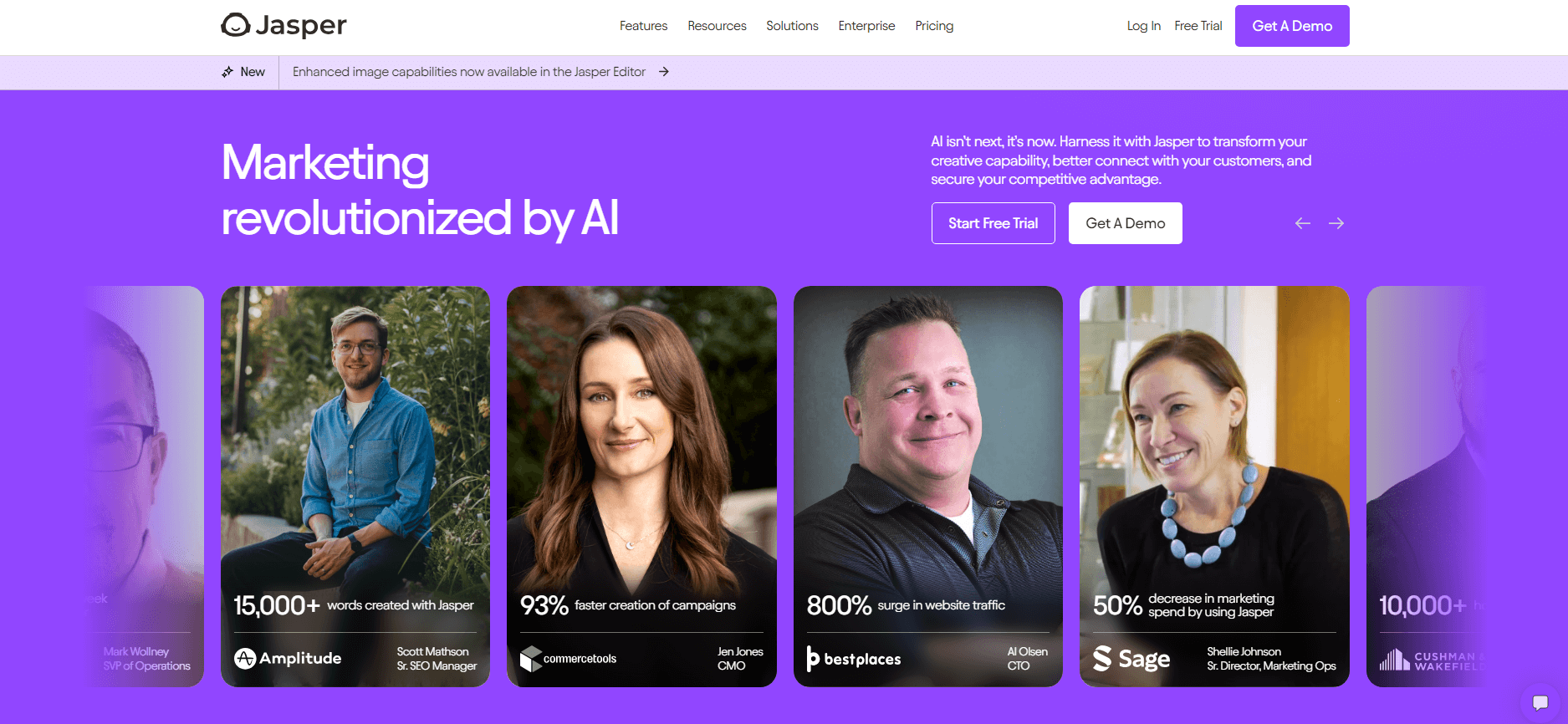
Jasper is an AI solution designed to revolutionize marketing practices. This powerful tool offers a multitude of features specifically tailored for marketing teams, enabling them to gain efficiency, creativity, and performance.
A wide range of AI tools
AI software spans many application areas and technologies, addressing specific needs, challenges, and users.
This diversity not only reflects the rapid evolution of AI software but also the ability of AI to adapt to very different sectors, ranging from healthcare to education, including financial services and entertainment.
Natural Language Processing (NLP) Software
NLP is a branch of AI that enables machines to understand, interpret, and generate human language. Tools like GPT-4, developed by OpenAI, can write texts, answer questions, and even translate languages with impressive accuracy.
Machine Learning Software
Machine learning is at the heart of many AI software. Platforms like TensorFlow and PyTorch allow developers to create models that learn and improve over time through data analysis.
Computer Vision Software
Computer vision is another major application of AI, where software analyzes and interprets visual information. Tools like OpenCV (Open Source Computer Vision Library) enable the development of applications capable of recognizing objects, faces, and even emotions in images and videos.
Conversational AI Software
Conversational AI software, such as voice assistants (Siri, Alexa, Google Assistant) and chatbots, use advanced NLP and machine learning technologies to interact with users naturally and intuitively.
Robotics and Automation Software
In robotics and automation, AI software enables machines to perform complex and precise tasks. Systems like ROS (Robot Operating System) provide frameworks for developing intelligent robots capable of navigating, manipulating objects, and interacting with their environment.
Incorporating an AI tool like Ringover’s Empower allows you to gain greater insights into your clients, customers, and candidates. You’ll be able to better communicate externally, and optimize coaching of your team.
How is AI software an asset for your business?
Using AI software can transform and optimize your business operations by leveraging the power of this cutting-edge technology. Here are some advantages and potential risks associated with adopting AI for your business.
Advantages of AI tools
- Automate repetitive and time-consuming tasks, increasing productivity, reducing errors, and freeing up time.
- Analyze large volumes of complex data to identify trends, make predictions, and provide insightful recommendations.
- Improve interactions with customers, prospects, and partners more naturally and personalized, enhancing customer satisfaction and loyalty.
- Create original and innovative content, boosting creativity and differentiation.
Disadvantages of AI tools
- Possibility of replicating or amplifying biases in data, leading to discrimination or errors.
- Ethical, legal, and security risks, posing challenges in terms of privacy and data protection.
- Significant investments and specialized skills required for development, maintenance, and updates.
- Complexity in managing and understanding the software, potentially leading to dependence or loss of control over AI-influenced operations.
It's crucial to thoroughly investigate these points with your future service provider. For instance, Empower by Ringover provides all necessary guarantees and ensures compliance with various regulations. Curious to learn more about Empower and see how it works for yourself? Start your free trial today!
-ee398.png)

